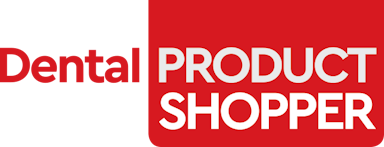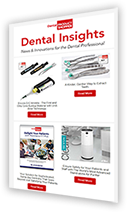What initially attracted you to dental hygiene as a career?
I originally wanted to be a teacher when I was in high school, but as there were not many opportunities for teachers in the early 70?s I began to explore other avenues. My neighbor, who was a dentist, suggested I look into dental hygiene. I liked science, especially biology, and thought that dental hygiene might be a good fit. I could still be a teacher, just in a different way than I originally planned. I sent the American Dental Hygienists? Association a letter requesting a list of programs and set my path on becoming a dental hygienist. I have been practicing ever since I graduated in 1975.
How and why did you decide to expand your professional activities beyond the operatory and clinical practice?
As a newly licensed RDH I knew that I wanted more flexibility beyond clinical practice. Six months after completing my AS Degree in Dental Hygiene I was back in school completing my BA in Health Education. I had my sights set on completing my MS Degree in Dental Hygiene at the University of Michigan. I wanted to become a dental hygiene educator. I still enjoyed private practice and direct patient care, but I wanted to have more options and be prepared to take advantage of other opportunities. I knew I would need advanced education to move beyond the operatory. Little did I know that it would be many years before I would teach in a dental hygiene program!
After completing my MS degree I got married and moved to Munich, Germany with my Canadian husband ? just for the adventure! After learning enough German to communicate fairly well, I was able to find a local dentist who wanted to be the first in Munich to have an American dental hygienist and I began to work 3 days a week. I was also asked to perform school screenings at the International School and I gave several continuing education courses to advanced dental assistants, ?auf Deutsch?, of course!
By the time I returned to California, I had two small children and the third one on the way. I wasn?t sure if I would ever get back to practice dental hygiene. Fortunately I had the opportunity to go back one day a week in my old office. While managing child care was a major challenge, I found that I loved the opportunity to provide patient care again. By the time my fourth son was born, I was working 2 days a week. As the years passed, I stayed involved in my local dental hygiene component.
As my family grew, I was able to take advantage of leadership opportunities at the local, state and national level. I also had the opportunity to do more public speaking ? first to share my experiences working abroad and later to present continuing education courses. My first course was on dental implants followed by others including new technologies, evidence-based practice, and caring for patients with cancer. Opportunities to write articles for dental hygiene publications followed, leading up to my appointment as editor of the Journal of the California Dental Hygienists? Association. I have also been able to pursue my goal of teaching in a dental hygiene program at my alma mater, Foothill College in Los Altos Hills.
My dental hygiene education has taken me many places and I am always looking for new avenues to collaborate with other healthcare professionals to integrate oral health with total health.
In your role as lecturer/educator, what is your favorite topic to tackle? What?s the most important thing YOU have learned while educating other dental hygienists?
As a lecturer/educator I always try to inspire my audience/students to consider themselves as being part of the healthcare team. Hygienists have an excellent education that often gets lost in the daily routine of hygiene recall patients. We need to think beyond ?cleaning teeth? and consider ourselves as healthcare providers. Scaling and root planing are only a part of what we do. The health education we provide our patients is often far more important than the last speck of calculus on the distal of #15. Hygienists have the opportunity to influence positive change in the lives of the patients they care for on a daily basis.
Since becoming involved in the discipline of dental hygiene, could you name the three top advancements/innovations that have impacted your professional life or the practice in general?
My top three advancements would be the use of loupes, a headlight and digital radiography. Magnification and illumination have transformed my ability to provide excellent patient care while improving my ergonomics on a daily basis. I cannot imagine practicing without my loupes and headlight!
I am fortunate to work in a practice with all of the latest technological advancements. I use a digital panoramic x-ray unit that can also take bite-wing images as well.
What is your message to fellow hygienists about their role in oral and head/neck cancer screening? What activities/initiatives have you been involved with to spread this message?
The oral cancer exam is the most important 2 ? 3 minutes of your dental hygiene care appointment. Every patient, no matter what their age, should have a head and neck exam each time you see them. The incidence of oral cancer is increasing in traditionally low-risk populations due to the Human Papilloma virus #16. Lesions and swellings that do not resolve within 7 to 10 days require follow-up. There are a number of great screening devices available to help detect abnormalities at their earliest stages, but the only way to make a definitive diagnosis is with an incisional biopsy. Tissue biopsies from the oral cavity should be interpreted by an oral pathologist. Hygienists play a key role in educating patients and the public about the increasing risks of oral cancer and the role we all play in screening and early detection.
As part of my role as a faculty moderator for the Foothill College Dental Hygiene Program Student Chapter, I was able to work with my students to organize an Oral Cancer Awareness Walk on our campus last April. The students raised over $5,000 for the Oral Cancer Foundation in what is now planned to be an annual event. I also present a continuing education course,? Providing Compassionate ad Comprehensive Care for Patients with Cancer? focusing on the role the dental team plays in supporting patients through their cancer treatment and beyond.



